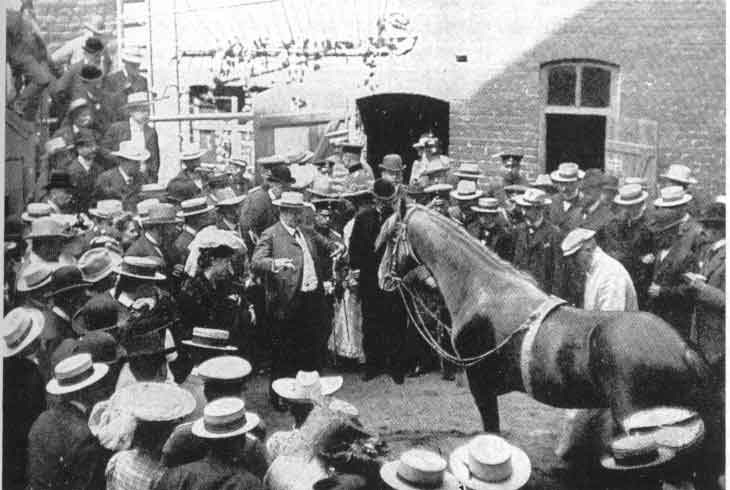Can horses count?
nvestigating the intelligence of any animal is fraught with difficulty, but nevertheless, the natural intelligence of horses is something which has been a source of fascination for centuries, and particularly suggestions that they are able to count. There are a number of records of horses which have apparently learnt to do so, extending as far back as 1658, although the best-known case of this type involved a Russian stallion called Hans.His owner, Wilhelm von Osten believed that any animal could master this ability, provided that it was taught correctly. When he acquired Hans in 1900 however, von Osten's claims had just been publicly ridiculed, as he had spectacularly failed to persuade both a bear and a dray horse to respond to his training attempts and reveal their mathematical abilities.

In the case of Hans however, von Osten found a willing pupil. He began by using word associations, with skittles serving initially to illustrate the sound of numbers, before progressing to writing these on a blackboard, and apparently persuading Hans to carry out harder sums. A number of eminent scientists and other experts spent five weeks testing Hans, often without his owner being present, and the unanimous conclusion of the group was that this horse did indeed have genuine mathematical skills.
Further tests
Others dismissed this conclusion however, suggesting that Hans' ability came from his innate ability to read human body language. When von Osten relaxed, Hans knew he had reached the point at which to stop. The almost imperceptible, subconscious tenseness and subsequent relaxation among members of the committee of experts assembled to test Hans' abilities was said to be the reason that he was able to give them the correct answers as well.
After von Osten's death in 1909, Hans passed into the care of Karl Krall who shared his interest in training animals to communicate with people. Krall already had a blind horse called Berto which seemed to possess remarkable mathematical talents. In Berto's case however, there could be no suggestion that he could have been influenced in any way by visual clues.
Scientists began to investigate both horses, hiding away behind peepholes to rule out any inadvertent hints as to the answer required, and yet Hans and Berto still confounded them, tapping out accurate responses to the sums with their hooves. Sadly however, before any firm conclusions could be reached, the First World War broke out, and all of Krall's horses were enlisted and died on the battlefield.
A survival strategy?
Many riders today fail to appreciate just how observant and sensitive horses can be, recognising a change in routine at an early stage which indicates an outing to a show for example, or responding to a slightest alteration in muscular pressure when out riding. This does not equate directly with intelligence however, in spite of the fact that horses have large brains relative to their body size, but is really a manifestation of a survival instinct.
Failing to detect a slight movement in the grass for example could spell the end for an unobservant equid in the wild, faced with a waiting predator. Keen awareness has therefore always been vital to their survival. But as to whether they can count? Now that's another matter!